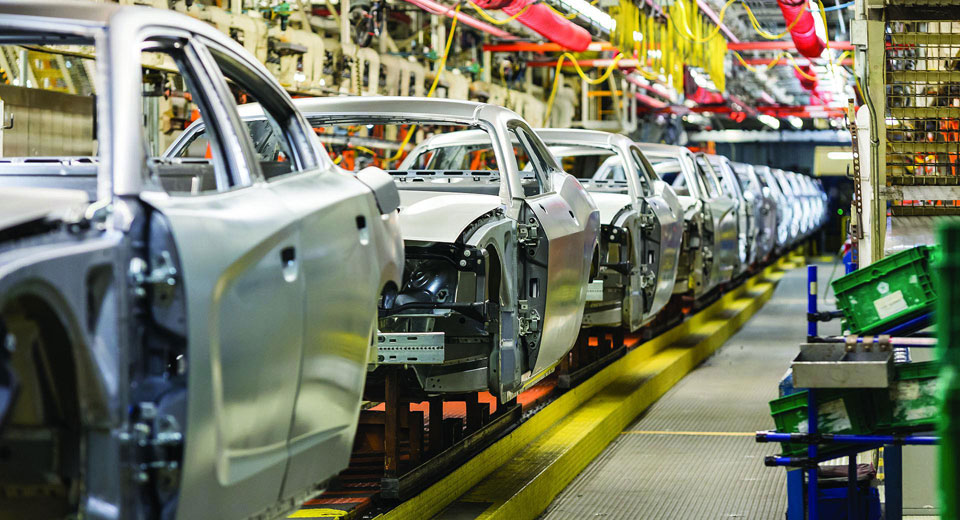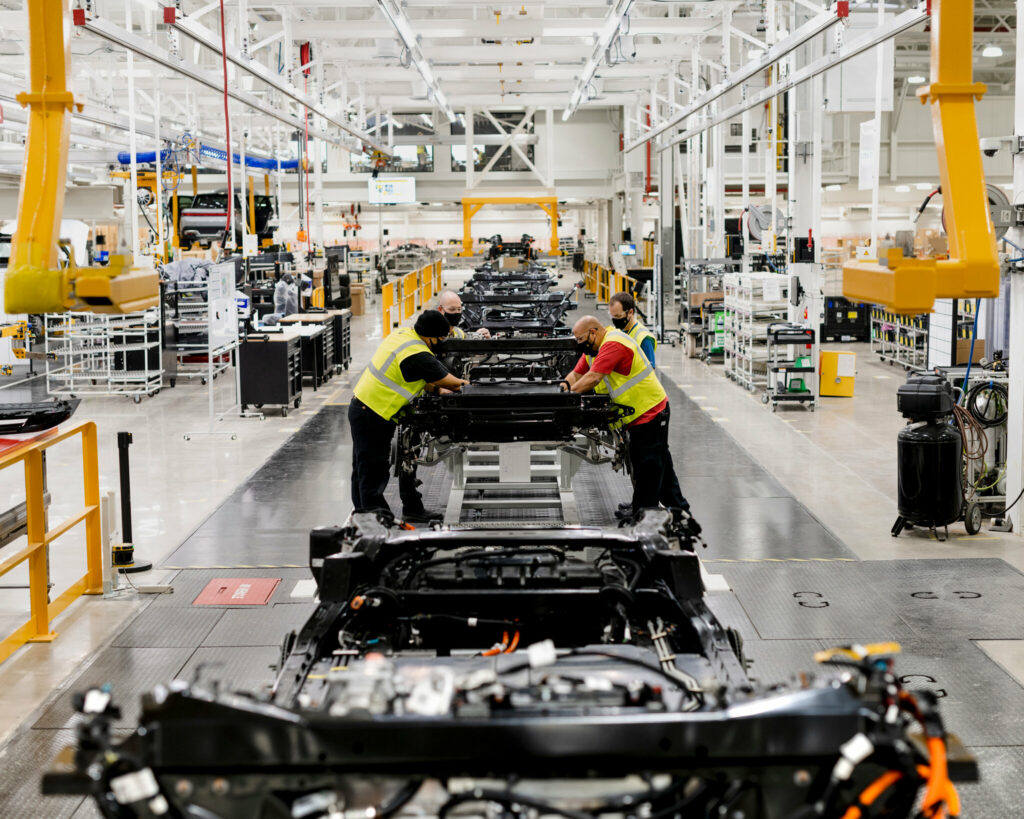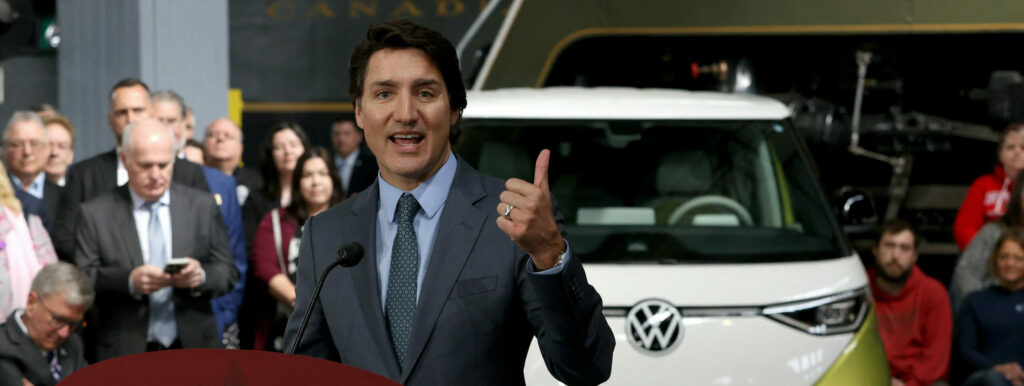Or, in this case, the auto sector. Fresh on the heels of Volkswagen scoring $13 billion in subsidies to build a $7 billion battery plant in Ontario, Stellantis announced that it was halting construction of an EV battery plant in nearby Windsor, Ontario until the feds gave it a huge handout too. Aaron Wudrick of the Macdonald-Laurier Institute called it “Another proud development in Canada's transition to a hostage-based economy” while Globe & Mail columnist Andrew Coyne chortled that “We might as well take out an ad: Extortionists Wanted. No Reasonable Threat Refused.”
Or even unreasonable. According to the Toronto Star, TD Economics “said it has crunched the numbers and the government of Canada has spent $139 billion since budget 2021, or five per cent of the country’s nominal GDP, on supports for clean energy development.” Which might sound like feckless pouring of tax dollars down a green sewer. But “The bank said this compares favourably to the U.S. Inflation Reduction Act’s estimated US$393 billion in spending, or 1.5 per cent of that country’s nominal GDP.” Favourably in the sense that if all your friends jumped off a 30-foot cliff, you’d jump off a 90-foot one.
Justin Trudeau tried to pretend otherwise. Bloomberg News reports that in an interview:
“When asked whether every other company building a battery plant can expect the same deal, Trudeau said no. ‘We are prepared to step up and make sure that we’re competitive’ with US manufacturing subsidies, Trudeau said Friday during an interview at Bloomberg’s headquarters in New York. ‘But we’re going to look at each one on a case-by-case basis. We will think strategically about this’ and not just say yes to any firm, he said.”
Yeah sure, not just any firm, only the ones who ask. Or not even ask. Witness the fawning, widely printed Canadian Press story about how Volkswagen didn’t even come to Industry Minister François-Philippe Champagne hat in hand. Instead the Minister “who is well known for his boundless energy” accosted its chief procurement officer in the street, cold-called its North American CEO, and pursued it across two continents to cram our cash into its pockets and set this disastrous precedent.
It is not obvious from his record that the Canadian Prime Minister makes a habit of thinking strategically on any file or that it works out well when and if he does. But it is particularly clear on fiscal matters that he really does think money grows on trees, or trust funds. After much rhubarb about a fiscally prudent budget in 2023 his Finance Minister, and deputy Prime Minister, cut the cable on the fiscal anchor and continued cruising on the Sea of Debt under the slogan we can’t afford not to.
As CTV recently said:
“The 2023 federal budget put the green economy front and centre, investing more than $80 billion over the next decade in everything from clean electricity to critical minerals, delivering a much-expected response to the package of investments made in the U.S. Inflation Reduction Act. Finance Minister Chrystia Freeland argued that Canada must either meet the moment or be left behind as the world races toward building the clean economy of the 21st century.”
Well, she would, wouldn’t she? She always does. But even CTV warned that:
“Proponents say these may be necessary for Canada to attract investment, especially in competition with the United States -- but others are expressing doubts that the hefty handouts will be effective or efficient in the long run.”
And it paraphrased “John Lester, an executive fellow at the University of Calgary’s School of Public Policy” that:
“there are various reasons why governments choose to subsidize businesses. A classic example is research and development, an endeavour with benefits that spill over to others in society, he said. But economists and experts warn that subsidies don’t always work the way they’re intended to, and can be inefficient when they incentivize companies to do something they were already planning to do.”
Or, we add, when they incentivize companies to do something no sane person would do unless handed a big sack of someone else’s money to cover the obvious losses it will involve.
Moreover, since the Trudeau Liberals did everything in their power to conceal the cost of this plant, and made insane statements like that from Industry Minister François-Philippe Champagne who, Terry Corcoran complained:
“blithered on with a stream of nonsensical claims. He said the ‘payback’ on Ottawa’s subsidy ‘is five years. That’s a very good investment. Talk to any banker, he would say, “if you get your money in five years, for a plant that’s going to be there for 100 years, that’s a pretty good deal for Canadians.”’”
Except that no bank was willing to invest its own money which strongly suggests the government’s claims about the payback schedule is fiction. And how many factories exactly have been where they are now for 100 years? D’oh. Industry Deputy Minister Simon Kennedy was left to dial back that century of glowing profits to “This facility is expected to last dozens of years” and somehow smooth over the discrepancy without admitting the obvious truth that his boss was, indeed, blithering.
Stumbling into that kind of PR mess makes it fairly plain that these people do not think things through in advance at all, let alone strategically. We might add that the Prime Minister, having been caught ignoring warnings about Chinese Communist subversion of our electoral system including harassing the family of a sitting Member of Parliament, ought to avoid talking about strategy at all until someone briefs him on what it is.
Since we do not like to be entirely negative all the time, we volunteer to start the process by laying the key point that throwing billions at anything that seems cool does not qualify as strategic, prudent, competitive or anything else good. Expending boundless energy to do so, creating the expectation that you are a piñata that a mere threat rather than a blow will cause to spew cash is even worse.



The real reason for the Trudeau government spewing cash at anything that moves is that their standing in the polls is so low they are reduced to running in 'let's try anything, who knows, it might even work' mode. (The latest Nanos poll shows them at 26.7% with the Conservatives at 35.6%.) We don't have a government any more, just a bunch of frightened politicians who believe against all evidence that they have a divine right to rule. The last English king to advance this theory lost his head.
Roger, Canada hasn't had a federal government for 8 years now. We have had a high school student council running the country. (With apologies to high school student councils.) Been saying this since "because it's 2015."
Total lack of any capacity for economic management. If you want a battery plant, why not just take this $13 Billion and build one? The big problem with Liberals is there is no alternative available to them. NDP would be just as incompetent.
Conservative party would be an absolute disaster. It looks like people being deluded to vote for them because of a lack of other options, and the hope that maybe they can do better. Usually a recipe for a much worse government.
There was never a time when the need for a new political movement in the country was obvious, it is now. The thing is for it to avoid getting drawn into electoral politics and instead to demand a reconstruction of the way things are run.
Given that there is nothing glorious about balancing budgets and focusing on the mundane business of trying to provide services though bloated, partisan, and unionized bureaucracies that could most likely be better provided by the private sector, western democracies are all on the same glorious and mythical crusade of planetary salvation where other peoples money is no barrier, yet. Central planning is usually a disaster in all things and when led by elected sociopaths devoid of real world skills is even more so. Industrial scale wealth destruction is all but guaranteed but at least the western democracies are competitive in such ventures.
So this is great for the US. They will eventually say Canadian made batteries have an unfair advantage due to government subsidies, apply tariffs, and make a bunch of loot for the US treasury, basically at the expense of the Canadian taxpayer, without them having to subsidize squat….They’ve done it with Bombardier’s airplanes, softwood lumber, dairy products….its a tried and true methodology….
This is a race to the bottom.Paid for by future generations.You have a gov't that cannot and will not balance a budget giving money to companies with oodles of cash already.If those cos. ran deficits like governments do,they'd be out of business in a very few years.
Looks like the blackmail threat from Stellantis worked.Gov'ts have agreed to pay their "tribute" as it was when Vikings were paid to leave the
Anglo-Saxons alone.Until the Vikings re-appeared a few years later demanding more tribute.